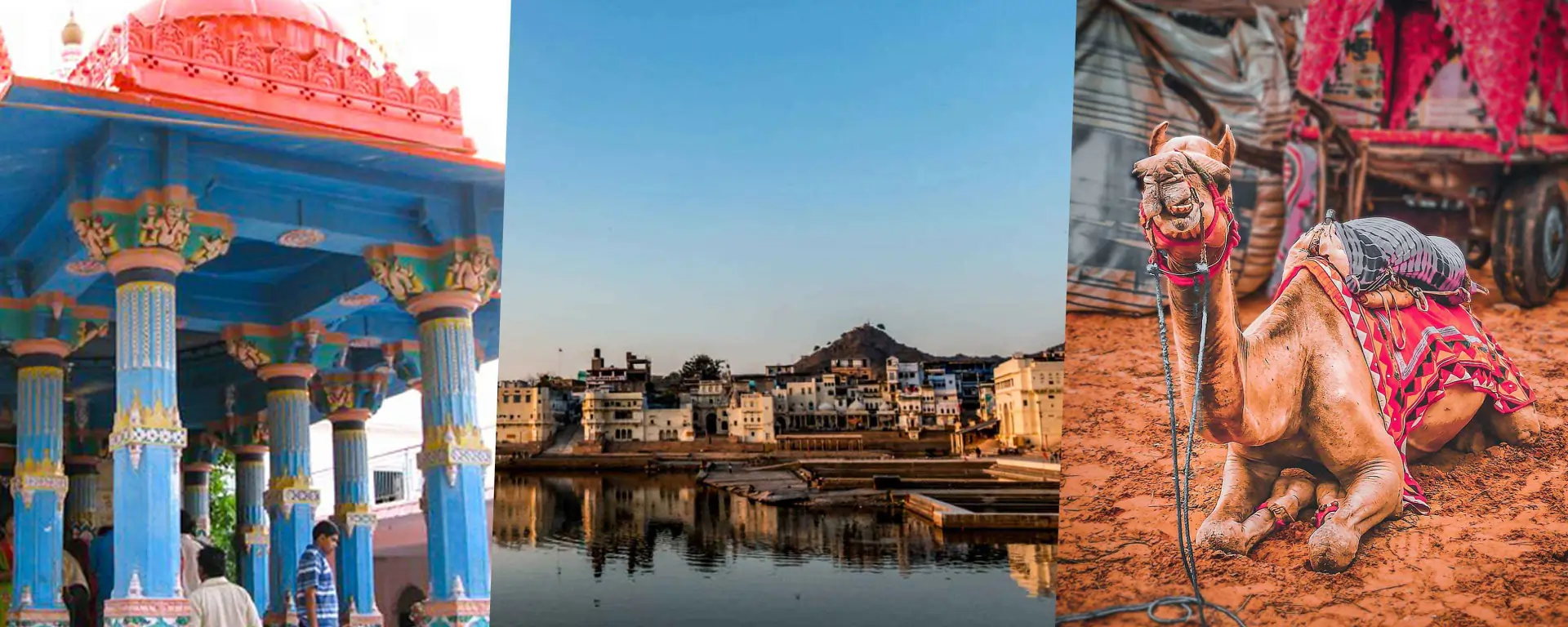
Introduction to the Culture of Rajasthan
The culture of Rajasthan is a vibrant mosaic of traditions, history, and artistic brilliance. Known as the "Land of Kings," Rajasthan is a state where every element – from the forts and palaces to its folk dances and cuisine – tells a story of grandeur and legacy.
This guide delves into the heart of Rajasthan, exploring its unique culture, celebrated festivals, culinary wonders, and historic landmarks.
The Historical Roots of the Culture of Rajasthan
The foundation of the culture of Rajasthan is deeply intertwined with its history. The state has witnessed the reign of mighty Rajput kings, who shaped its traditions and customs over centuries.
- Rajput Influence: The valor and chivalry of the Rajputs remain central to Rajasthani culture, inspiring art, architecture, and folklore.
- Mughal Integration: Rajasthan’s culture also bears traces of Mughal artistry, particularly in architecture and cuisine.
Key highlights of Rajasthan's historical influence include:
- Chittorgarh Fort: A symbol of Rajput resilience and sacrifice.
- Battle of Haldighati: Maharana Pratap’s legendary fight against Akbar.
Festivals That Define the Culture of Rajasthan
Festivals are an integral part of Rajasthani culture, celebrated with unmatched zeal and grandeur. Each festival is a reflection of the state’s rich heritage and spiritual beliefs.
Famous Festivals of Rajasthan
- Pushkar Camel Fair: A global spectacle blending camel trading with cultural celebrations.
- Teej Festival: Celebrated by women to honor marital harmony and the monsoon season.
- Desert Festival, Jaisalmer: A three-day celebration showcasing camel races, folk music, and dance performances.
The festivals are a window into the culture of Rajasthan, highlighting its traditions, rituals, and community spirit.
Traditional Attire and Jewelry: The Essence of Rajasthan’s Culture
Attire
The traditional clothing in Rajasthan is as colorful and vibrant as its culture. The attire varies across regions but commonly includes:
- Men: Turbans, angrakhas, and dhotis, adorned with intricate embroidery.
- Women: Ghagras (skirts) and cholis (blouses), complemented by odhnis (scarves) with bandhani or leheriya prints.
Jewelry
Jewelry plays a significant role in the culture of Rajasthan, with distinct styles like:
- Kundan and Polki Work: Often seen in necklaces and bridal sets.
- Silver Ornaments: Including anklets, bangles, and waistbands.
Arts and Crafts: A Pillar of the Culture of Rajasthan
The culture of Rajasthan thrives on its arts and crafts, which reflect centuries of skill and creativity.
Handicrafts
- Blue Pottery (Jaipur): Famous for its vibrant blue hues and intricate floral designs.
- Block Printing: Practiced in Sanganer and Bagru, featuring colorful patterns on textiles.
- Carpets and Rugs: Woven in towns like Bikaner and Tonk, these are prized for their quality and artistry.
Folk Music and Dance
Music and dance are integral to the culture of Rajasthan, expressing the joys and struggles of its people.
- Maand Music: A classical form praising the bravery of Rajput kings.
- Kalbelia Dance: Performed by the Kalbelia tribe, mimicking snake movements.
- Ghoomar Dance: Known for its elegant swirls and festive spirit.
Landmarks Reflecting the Culture of Rajasthan
Rajasthan’s iconic landmarks are a testament to its rich culture and history.
Forts and Palaces
- Amber Fort (Jaipur): Known for its Sheesh Mahal (Hall of Mirrors).
- Mehrangarh Fort (Jodhpur): One of the largest forts in India, showcasing Rajput architecture.
- City Palace (Udaipur): A grand complex reflecting the opulence of Mewar royalty.
Religious Sites
- Pushkar Lake: A sacred destination for Hindus.
- Dilwara Temples (Mount Abu): Renowned for their exquisite marble carvings.
- Karni Mata Temple: Popularly known as the Rat Temple, a unique cultural and spiritual site.
Desert Attractions
- Sam Sand Dunes (Jaisalmer): Offering camel safaris and cultural performances under the stars.
- Ranthambore National Park: A blend of nature and heritage.
Cuisine: A Culinary Reflection of the Culture of Rajasthan
The cuisine of Rajasthan is a true reflection of its culture, marked by bold flavors and inventive use of desert-friendly ingredients.
Signature Dishes
- Dal Baati Churma: A traditional meal combining spiced lentils, baked dumplings, and sweet wheat crumble.
- Laal Maas: A spicy mutton curry made with red Mathania chilies.
- Ker Sangri: A vegetarian dish made from dried berries and beans, unique to the desert region.
Snacks and Sweets
- Pyaaz Kachori: A savory snack filled with spiced onion stuffing.
- Ghevar: A festival dessert, often served during Teej and Raksha Bandhan.
Spirituality and Folklore in Rajasthani Culture
The culture of Rajasthan is deeply spiritual, with folklore, temples, and rituals playing a vital role.
- Legends of Bravery: Tales of Maharana Pratap and Rani Padmini inspire pride among locals.
- Temple Fairs: Events like the Kaila Devi Fair bring communities together in celebration and devotion.
Preserving the Culture of Rajasthan in Modern Times
Despite modernization, Rajasthan has preserved its cultural heritage. Efforts include:
- Promoting local artisans through fairs and exhibitions.
- Organizing heritage walks in cities like Jaipur and Udaipur.
- Eco-tourism initiatives to sustain cultural practices and traditions.
Conclusion: The Eternal Charm of Rajasthan’s Culture
The culture of Rajasthan is an enduring legacy of history, art, and tradition. From its grand forts and vibrant festivals to its exquisite cuisine and folk arts, Rajasthan offers a cultural experience that is both enriching and unforgettable.
Whether you’re exploring its majestic landmarks, savoring its rich flavors, or dancing to its folk tunes, Rajasthan captivates the soul with its timeless charm.
Book your next journey with The Raj Travels – where your comfort is our priority!